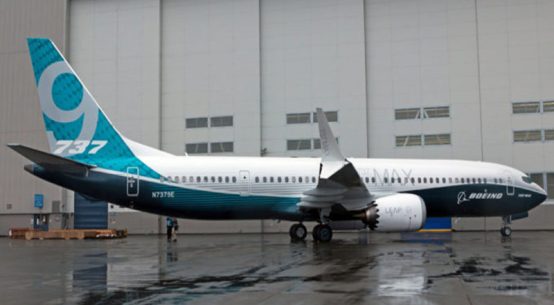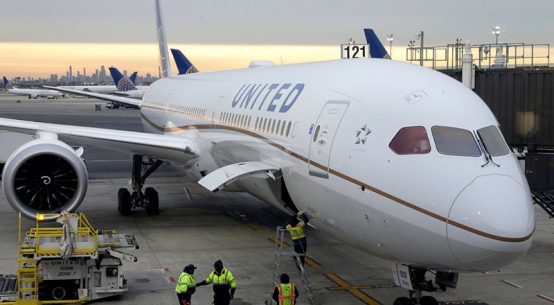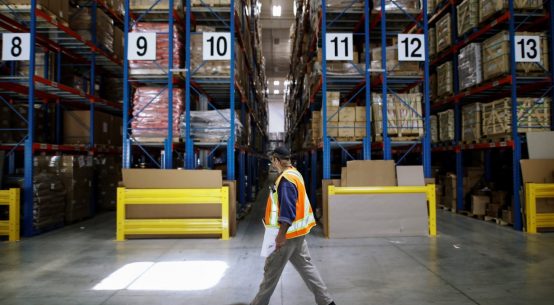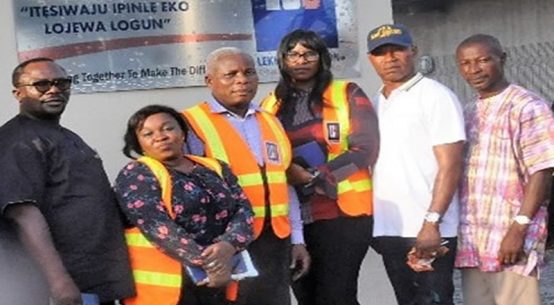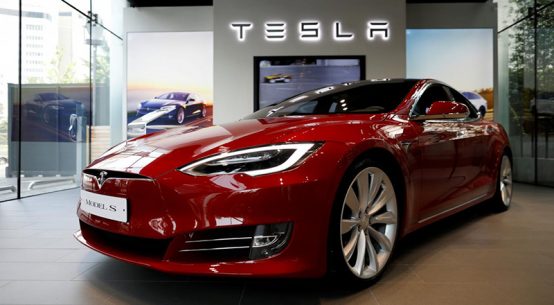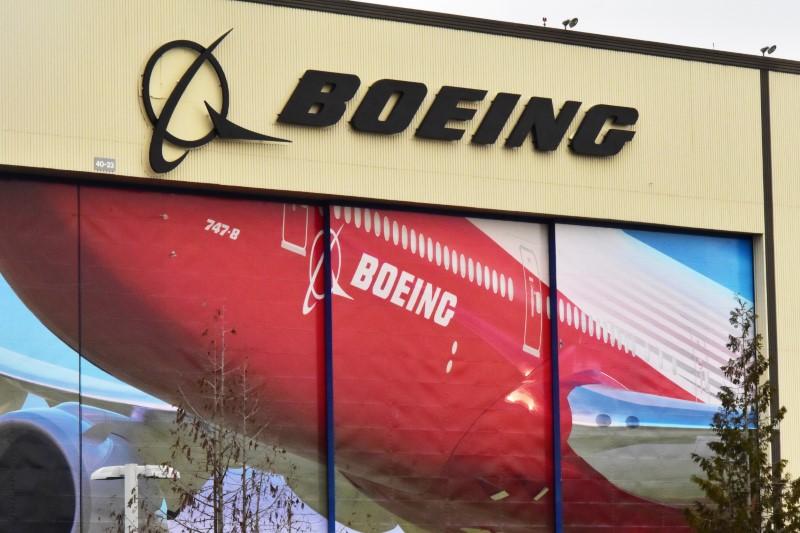
Boeing Co’s logo is seen above the front doors of its largest jetliner factory in Everett, Washington, U.S. January 13, 2017. REUTERS/Alwyn Scott
TOKYO (Reuters) – Boeing Co, the world’s biggest maker of passenger jets, has used Kobe Steel products that include those falsely certified by the Japanese company, a source with knowledge of the matter told Reuters.
Boeing does not consider the issue a safety problem, the source stressed, but the revelation may raise compensation costs for the Japanese company, which is embroiled in a widening scandal over the false certification of the strength and durability of components supplied to hundreds of companies.
The U.S. airline maker is carrying out a survey of aircraft to ascertain the extent and type of Kobe Steel components in its planes and will share the results with airline customers, said the source who has knowledge of the investigation.
The source asked not to be named because of the sensitivity of the issue.
Even if the falsely certified parts do not affect safety, given the intense public scrutiny that airlines operate under they may opt to replace suspect parts rather than face any backlash over concerns about safety.
Any large-scale program to remove those components, even during scheduled aircraft maintenance, could prove costly for Kobe Steel if it has to foot the bill.
Boeing’s European rival Europe’s Airbus said it does not buy products directly from Kobe Steel but is investigating whether any suppliers have been affected.
“So far we have not identified any suppliers that procure materials from Kobe Steel for parts fitted on our aircraft,” an Airbus spokesman said by email.
Airbus does, however, buy titanium landing gear parts for its latest long-haul jet, the A350, from France’s Safran, which are manufactured by Japan Aeroforge, a joint venture between Kobe Steel and Hitachi Metals.
A spokesman for Kobe Steel said Japan Aeroforge products were not under investigation “at this point.”
Kobe Steel’s CEO, Hiroya Kawasaki, on Thursday said his company’s credibility was at “zero.” On Friday he pledged that Kobe Steel would pay customers’ costs resulting from the data fabrication of that may stretch back 10 years.
In the U.S., General Motors said it is checking whether its cars contain falsely certified components from Kobe Steel, joining Toyota Motor Corp and around 200 other firms that have received falsely certified parts from the company.
Boeing does not buy products such as aluminum composites, used in aircraft because of their lightweight, directly from Kobe Steel. Its key Japanese suppliers, including Mitsubishi Heavy Industries, Kawasaki Heavy Industries and Subaru Corp, however, do.
Mitsubishi Aircraft, a Mitsubishi Heavy subsidiary, said it uses Kobe Steel in the Mitsubishi Regional Jet, Japan’s first passenger aircraft in half a century. The aircraft has yet to enter service.
“We have concluded at this time that it will not impact the MRJ as it remains within the design standards we originally set for aircraft safety,” a spokeswoman for Mitsubishi Aircraft said.
Japanese companies are a key part of Boeing’s global supply chain, building one fifth of its 777 jetliner and 35 percent of its carbon composite 787 Dreamliner.
FOLLOW US ON FACEBOOK FOR MORE LOGISTICS NEWS
“Boeing has been working closely and continuously with our suppliers since being notified of the issue to ensure timely and appropriate action,” Boeing said in a statement earlier this week after Kobe Steel’s bombshell announcement over the weekend.
“Nothing in our review to date leads us to conclude that this issue presents a safety concern,” it added.
Work for the U.S. planemaker employs around 22,000 Japanese engineers or 40 percent employed in the nation’s aerospace business.



